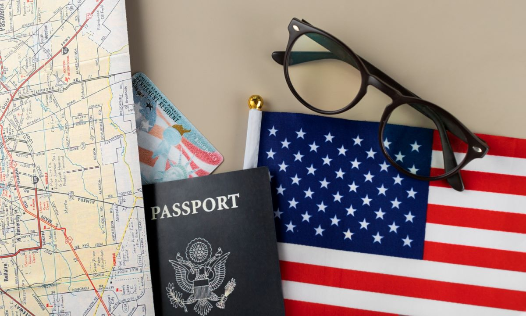Payment is being processed. Please do not refresh or close this page until your payment is complete.
 Book an Appointment
Book an Appointment

The United States is tightening its immigration policies, making it more challenging for students and workers to pursue opportunities in the country.
Recent changes to visa rules, including significant fee hikes and stricter regulations, are affecting the flow of international talent.
The United States has long been a preferred destination for international students and skilled professionals.
However, recent shifts in U.S. visa regulations, including increased fees and modified rules, are poised to significantly impact those aspiring to study or work in the country.
Here’s an overview of the recent changes and their effects.
H-1B Visa Fees See Major Increase
The H-1B visa, essential for employing foreign professionals in specialized fields, has seen dramatic fee increases:
• Registration Fee: The cost has risen from $10 to $215 per applicant, an astounding 2150% increase.
• Application Fee for Paper Filings: The fee has gone up from $460 to $780, representing a 70% hike.
Additional Charges: Applicants may also face extra costs, including:
• Fraud Prevention and Detection Fee
• Asylum Program Fee
• Fees mandated by Public Law 114-113
• American Competitiveness and Workforce Improvement Act (ACWIA) fee
Higher Costs for Green Card Filings
Obtaining a green card has also become more expensive.
The I-130 petition filing fee has risen to $675 for paper applications and $625 for online submissions, up from the previous $535.
A new $600 Asylum Program Fee has also been introduced for certain non-immigrant and immigrant worker petitions, adding to the financial strain on applicants.
USCIS Aims to Improve Operations
U.S. Citizenship and Immigration Services (USCIS) has justified the fee increases as necessary for covering operational costs and modernizing its systems. Key changes affecting international students include:
Enhanced Requirements for Student Visas
Applicants for F, M, and J visas must now provide precise passport details when booking appointments, a move aimed at improving data accuracy and streamlining the visa appointment process.
• Passport Details: Applicants for F, M, and J visas must now provide accurate passport information when scheduling appointments.
• Objective: This change aims to improve data accuracy and streamline the appointment system.
EAD Extension Updates
USCIS has also relaxed the rules for Employment Authorization Documents (EADs), extending the validity period to a maximum of five years for eligible applicants. This change aims to provide greater stability and reduce the frequency of renewals for those facing employment challenges.
• Eligibility: USCIS has relaxed criteria for Employment Authorization Documents (EADs), allowing a maximum validity of five years for eligible applicants.
• Benefit: This extension provides greater stability and reduces the frequency of renewal applications.
Practical Training Options for International Students
International students in the U.S. can benefit from various Practical Training (PT) opportunities, which offer work experience related to their field of study:
Optional Practical Training (OPT)
OPT is divided into two types: Pre-Completion OPT allows F-1 students to work part-time during their studies, while Post-Completion OPT grants up to 12 months of work authorization after graduation.
Curricular Practical Training (CPT)
CPT provides full-time work opportunities directly related to a student’s academic program, bridging the gap between classroom learning and real-world experience.
Practical Training (PT) for M-1 Students
Students in M-1 vocational programs can engage in PT after completing their studies, with the duration depending on the length of their program.
Updates to Practical Training Regulations
Recent changes have introduced minor adjustments to the rules governing Practical Training for students:
Before April 1, 2024:
• STEM OPT Extension: F-1 students could receive a 24-month extension of their Post-Completion OPT.
• Employer Participation: Employers were required to be part of the E-Verify program.
• Reporting: Students on STEM OPT were required to update their Designated School Official (DSO) every six months.
After April 1, 2024:
• STEM OPT Extension: The 24-month extension for STEM OPT remains unchanged.
• Employer Requirements: E-Verify is no longer required, but employers must still document a formal training plan using Form I-983.
• Reporting Changes: The reporting interval has been reduced from six months to one year.
• Unemployment Allowance: The combined total for unemployment during OPT and STEM OPT has been extended from 150 days to 180 days.
• Fee Adjustments: The fee for the STEM OPT extension application (Form I-765) has increased to $470 for online applications and $520 for paper filings.
Final Thoughts
These changes reflect broader adjustments in U.S. immigration policy, with increased fees and modified regulations affecting visa applicants across various categories. International students and skilled workers should carefully review these updates to understand their implications and navigate the new visa landscape effectively.
Source: https://travelobiz.com/how-recent-changes-to-us-visa-rules-impact-skilled-workers-and-students/